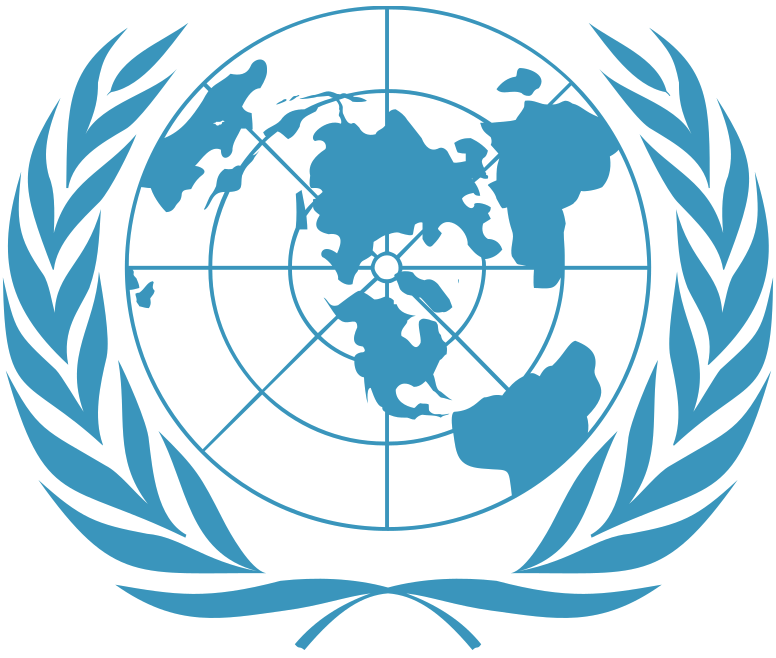
The United Nations
The United Nations (UN) was established after World War II to maintain peace, prevent future wars, and institutionalize cooperation between countries. Even today, 73 years after its foundation, the UN continues to make a difference in terms of peacekeeping and security. Furthermore, it continues to make a crucial contribution in many other areas.
What is the impact of the UN on you as an individual?
The UN is currently engaged in activities covering almost every aspect of society, including peace and security, economic and social development, human rights, and humanitarian aid. The UN has disseminated many of the norms, values, and rights that we consider self-evident in Belgium and Luxembourg today. The UN also has a direct impact on the lives of millions of individuals; for example, it provides food and assistance to approximately 80 million people in 80 different countries. Below are some major successes of the UN:
Peacekeeping:
Currently, the UN has around 100,000 peacekeepers, known as “Blue Helmets,” contributing to the preservation of peace and security through 14 operations. Although the UN’s budget for peacekeeping is less than half of 1% of global military spending, its contribution to global peace remains undeniable. Peacekeeping is considered one of the most successful actions the UN has undertaken in its 73-year history.
Human Rights:
The Universal Declaration of Human Rights (UDHR), adopted by the UN General Assembly in 1948 as a “common ideal for all peoples,” remains the benchmark document for human rights. In 1959, the General Assembly adopted the Declaration of the Rights of the Child, which includes access to education, healthcare, protection, and healthy food for children. This Declaration is the most ratified human rights treaty globally, signed by 190 countries. The UN has also played a major role in promoting women’s rights. In 1979, 187 countries adopted the UN Convention on the Elimination of All Forms of Discrimination Against Women, often referred to as the “International Bill of Rights for Women.” Additionally, in 2017, the UN and the European Union launched the Spotlight Initiative, a multi-year global initiative aiming to eliminate gender-based violence.
Fight Against Hunger:
The World Food Programme (WFP) is considered one of the most effective programs established by the UN. Each year, the WFP feeds populations in war zones, natural disasters, emergency situations, and impoverished countries.
Humanitarian Aid for Refugees:
The UN Refugee Agency (UNHCR) is another success of the United Nations. Founded in 1949, the UNHCR has already assisted 17 million asylum seekers and refugees. The UNHCR directly aids refugees and ensures that governments fulfill their responsibilities towards them.
Health:
Through the extensive vaccination campaign led by the World Health Organization (WHO) in the 1980s, polio has been eradicated in many countries. The Global Polio Eradication Initiative, coordinated by the UN, has virtually eliminated this disease. It persists only in Afghanistan, Nigeria, and Pakistan, whereas it once caused paralysis in children in 125 countries. The Joint United Nations Programme on HIV/AIDS (UNAIDS), in collaboration with eleven other agencies, including WHO, coordinates actions in over 80 countries to combat the development of the HIV/AIDS epidemic. The approach includes awareness, fundraising, and the implementation of appropriate prevention and treatment programs.
Global Solutions to Climate Change:
The issue of climate change requires a global solution. The UN has been at the forefront in this field, summarizing scientific knowledge and developing a political solution. The Intergovernmental Panel on Climate Change (IPCC), bringing together 2,000 specialists, publishes comprehensive assessments every five to six years. In 2007, it confirmed that climate change was a reality, with human activity being one of its primary causes. The 196 members of the United Nations Framework Convention on Climate Change negotiate agreements to help countries reduce greenhouse gas emissions and adapt to climate change. In this area, the United Nations Environment Programme (UNEP) and other UN institutions have played a significant role in raising societal awareness of these issues.
Highlighting Invisible Problems:
Without the efforts of the United Nations, certain issues might not have gained prominence, such as victims of landmines, cholera patients, child soldiers, modern slavery, and other less obvious problems.
